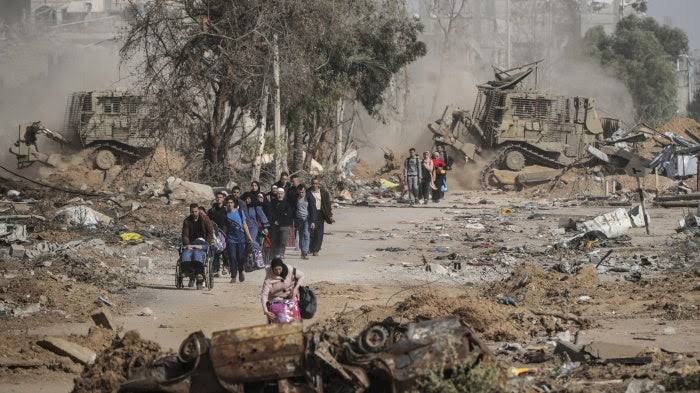Washington urges diplomacy, Israel plans more strikes

Israeli media sources revealed that the government in Tel Aviv held marathon meetings from Thursday night into Friday morning, involving Prime Minister Benjamin Netanyahu, several ministers, and military chiefs, in an attempt to justify the continuation of its assault on the Gaza Strip, despite mounting warnings about the catastrophic impact on civilians and captives.
During the discussions, Israel’s Chief of Staff, Lt. Gen. Eyal Zamir, cautioned that a full-scale invasion to seize total control of Gaza would endanger the lives of detainees and hostages and contradict the stated war objectives. He pointed to the exhaustion of reserve forces, the need for a military reset, and the harsh summer conditions in Gaza.
Diplomatic pressure from the United States also surfaced in the talks, with Washington stressing the need to give diplomacy more time. While the U.S. acknowledges the political complexity, it urged Israel to halt escalation, warning that continued military aggression will not bring security nor disarm the Palestinian resistance but will only deepen humanitarian suffering and destruction.
Despite these warnings, some figures within Israel’s security establishment pushed for renewed military escalation, claiming—without evidence—that increased pressure might force the resistance to yield. In the end, Israel agreed to what it called a “compromise,” delaying a full takeover of Gaza by two months while maintaining bombardment and limited incursions, particularly in Gaza City’s Zeitoun neighborhood and along the so-called “Netzarim Corridor,” a military route that effectively fragments the enclave.
Meanwhile, U.S. Special Envoy to the Middle East Steve Witkoff met in Doha with Qatari Prime Minister Mohammed bin Abdulrahman Al Thani to explore the possibility of an agreement to end the war. Talks centered on the core disputes: Israel’s insistence on a buffer zone along the Gaza–Egypt border, and the Palestinian resistance’s demand for the release of prisoners, including those accused by Israel of participating in the October 7 events.
This episode underscores Israel’s long-standing strategy of stalling for time—using ceasefire talks not to end the bloodshed but to regroup militarily—while Palestinians in Gaza continue to endure relentless bombardment, siege, and deprivation of food, medicine, and safety.
How to submit an Op-Ed: Libyan Express accepts opinion articles on a wide range of topics. Submissions may be sent to oped@libyanexpress.com. Please include ‘Op-Ed’ in the subject line.
- UN mission warns judicial rifts threaten Libya’s elections - January 30, 2026
- Libya positions its oil sector for renewed investment - January 28, 2026
- Libya draws Saudi interest in refining as regional energy ties deepen - January 28, 2026


